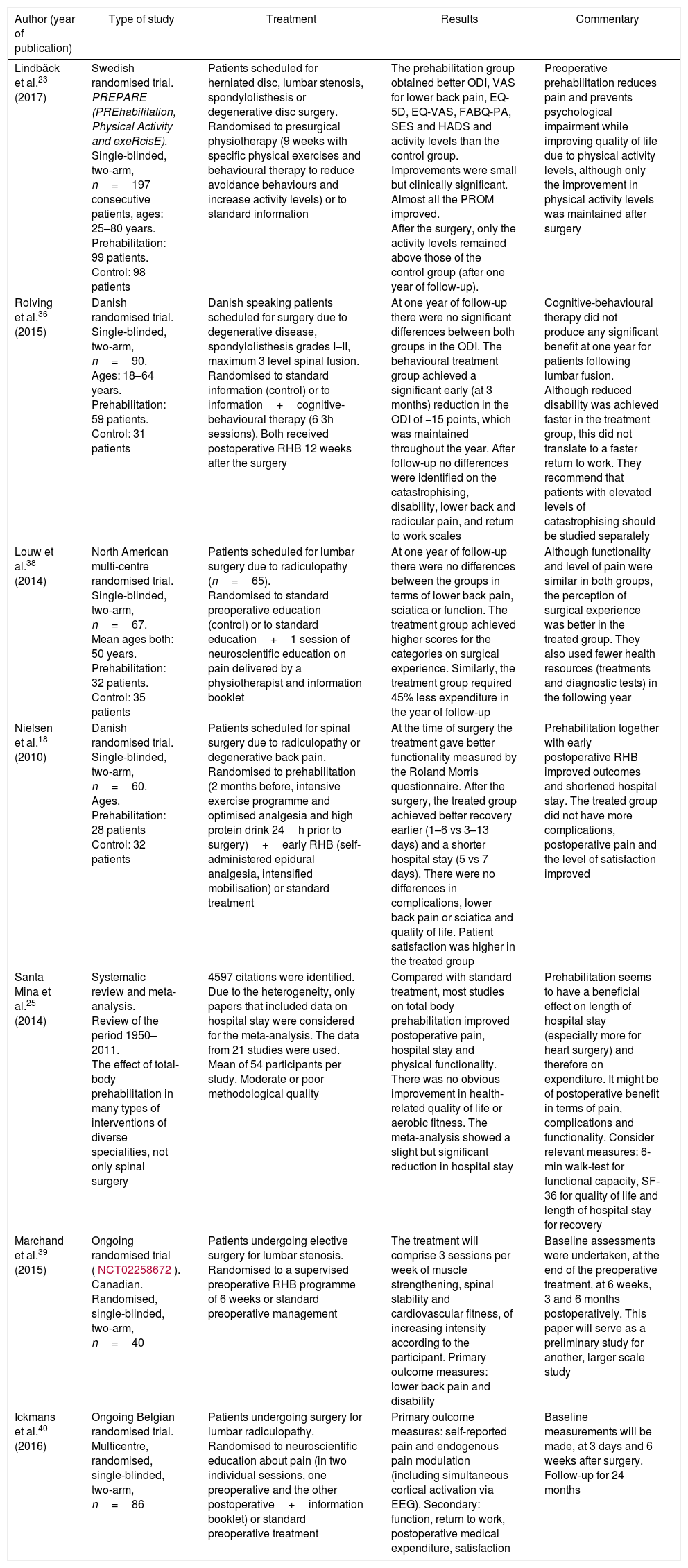Surgery for lumbar degenerative pathology, although effective, results in suboptimal outcome and degrees of disability in a relevant proportion of patients. Postoperative rehabilitation has failed to demonstrate efficacy in the mid and long term. So-called “prehabilitation” (physiotherapy and/or cognitive-behavioural therapy) focuses in augmenting patients’ functional capacities before surgery by improving their physical condition and their perception of pain, surgical experience or its consequences. Several studies suggest that prehabilitation improves postoperative outcome, shortens hospital stay and may reduce costs compared to classic postoperative rehabilitation. However, its true effect seems to be influenced by factors like obesity, co-morbidity and, especially, by a wrong perception of the natural history of this pathology in terms of catastrophising and kinesiphobia. In this paper we describe the concept of prehabilitation, review the literature, and discuss the role of some clinical conditionings involved.
La cirugía de columna lumbar degenerativa, aunque efectiva, produce resultados subóptimos y cierto grado de discapacidad en un porcentaje relevante de pacientes. El tratamiento rehabilitador postoperatorio no ha demostrado utilidad a medio y a largo plazo. La denominada «prehabilitación» (tratamientos físioterápicos y/o cognitivo-conductuales) busca aumentar las capacidades funcionales del paciente antes de la intervención mejorando el estado físico y la percepción del dolor, de la experiencia quirúrgica o de sus consecuencias. Diversos estudios sugieren que la prehabilitación mejora la funcionalidad postoperatoria, acorta la estancia hospitalaria y podría ahorrar costes frente a la rehabilitación postoperatoria clásica. Sin embargo, su efecto real parece influenciarse de variables como la obesidad, comorbilidades y, especialmente, una errónea percepción de la historia natural de estas enfermedades, en forma de catastrofismo y cinesifobia. En este trabajo se describe el concepto de prehabilitación, se revisa la literatura al respecto y se discute el papel de diversos condicionantes clínicos involucrados.
Article

If it is the first time you have accessed you can obtain your credentials by contacting Elsevier Spain in suscripciones@elsevier.com or by calling our Customer Service at902 88 87 40 if you are calling from Spain or at +34 932 418 800 (from 9 to 18h., GMT + 1) if you are calling outside of Spain.
If you already have your login data, please click here .
If you have forgotten your password you can you can recover it by clicking here and selecting the option ¿I have forgotten my password¿.








